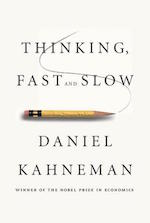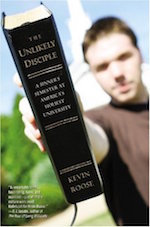Dispelling the myth of a ‘Christian nation’
Charles C. Haynes
Director, Religious Freedom Education Project
Thursday, August 8, 2013
Culture warriors, pseudo-historians and opportunistic politicians have spent the last several decades peddling the myth that America was founded as a “Christian nation.”
The propaganda appears to be working.
A majority of the American people (51%) believes that the U.S. Constitution establishes a Christian nation, according to the State of the First Amendment survey released last month by the First Amendment Center.
Because language about a Christian America has long been a staple of Religious Right rhetoric, it’s not surprising that acceptance of this patently false interpretation of the Constitution is strongest among evangelicals (71%) and conservatives (67%).
But even many non-evangelical Christians (47%) and liberals (33%) appear to believe the fiction of a constitutionally mandated Christian America is historical fact.
Forgive me for being snippy, but read the Constitution.
Nowhere will you find mention of God, Christ or any intention to found a Christian nation.
On the contrary, the only reference to religion in the Constitution – before the addition of the Bill of Rights – comes in Article VI:
“No religious Test shall ever be required as a Qualification to any Office or public Trust under the United States.”
This means that political power in the United States may never be limited to people of one faith – a necessary condition for a “Christian nation” – but must be open to people of all faiths or none.
Barring a religious test for office sparked widespread outrage in 1787, especially in states with religious tests designed to make sure that only Protestants or Christians would ever be allowed to hold elected office.
But in their wisdom, the Framers in Philadelphia knew that the time had come to break from the precedents of history and bar any religious group from ever imposing itself on the nation using the engine of government.
Even this wasn’t good enough for Thomas Jefferson and other founders who wanted to prohibit any and all entanglement of government and religion in the new nation.
In 1791, the opening words of the First Amendment – “Congress shall make no law respecting an establishment of religion or prohibiting the free exercise thereof …” – were added to the Constitution, further ensuring a fully secular state with a guarantee of religious freedom for all.
Of course, some of the founders (not unlike some Americans today) worried that “no establishment” might lead to a breakdown in Christian values in American culture. Alexander Hamilton, for example, contemplated the creation of a “Christian Constitutional Society” to promote Christian virtues and principles among the people.
But in spite of this anxiety, drafters of the Constitution took the radical step of founding the first nation in history with no established religion.
Truth be told, they had little choice.
Religious divisions among the many Protestant sects in 18th century America were deep and abiding. Anglicans, Quakers, Baptists, Congregationalists and many others fought bitterly over what it meant to be “Christian” – although almost all could agree that “Papists” (Roman Catholics) were followers of the anti-Christ.
In other words, religious diversity at America’s founding made a necessity of religious freedom because no one group had the power or the numbers to impose its version of true faith – Christian or otherwise – on all others.
It is worth remembering, however, that principles as much as practical politics inspired many of our founders to define religious freedom as requiring no establishment of religion.
Roger Williams, to cite the earliest and best example, founded the colony of Rhode Island in 1636 out of his conviction that only by erecting a “wall or hedge of separation” between the “garden of the church” and “the wilderness of the world” would it be possible to protect liberty of conscience as required by God.
Religious freedom, Williams argued, is itself a Christian principle.
Any attempt to establish a Christian nation, therefore, always has been and always will be unjust, dangerous and profoundly un-Christian.
 January 2014
January 2014 October 2013
October 2013 January 2013
January 2013